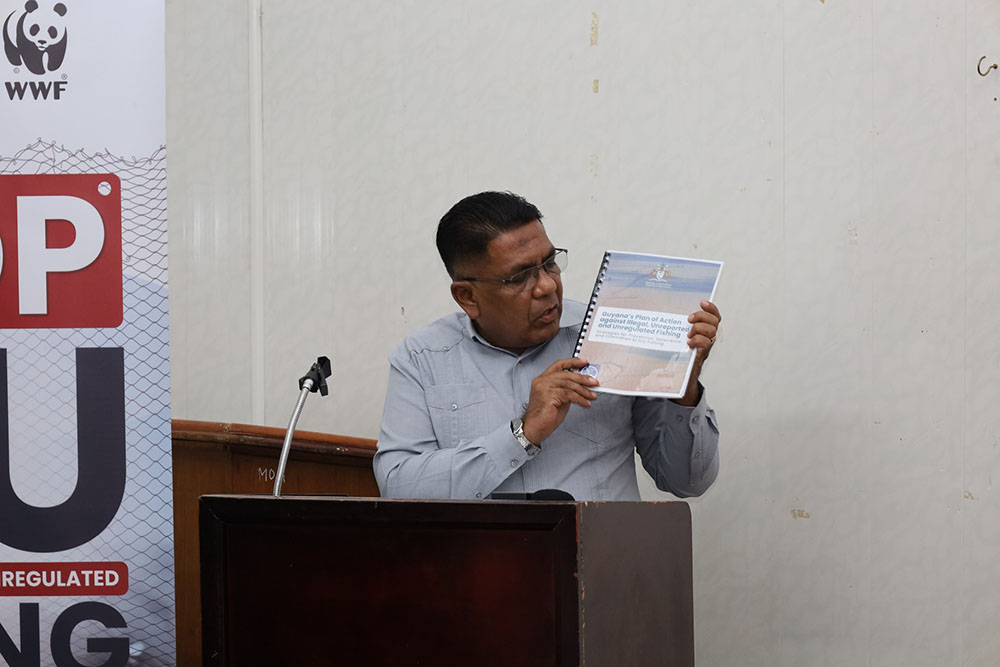A report for the government on illegal, unreported and unregulated (IUU) fishing said that as recent as 2021, there were 19,000 vessel-days where non-Guyanese flagged vessels were found in this country’s Exclusive Economic Zone (EEZ).
“In the latter part of 2021, there were over 19,000 recorded vessel-days where non-Guyanese flagged fishing vessels were found to be within the Guyana’s EEZ). More than 2,600 of these vessel-days were by CARICOM Member States”, the report submitted to the Ministry of Agriculture said.
While the actual activity being carried out during each of these vessel-days has yet to be determined, the report said that they serve as a proxy for the comparative level of IUU fishing when/if considered across coastal states, absent the determination of innocent passage.
The data will add to concerns about Guyana’s ability to patrol its EEZ.
The report said that Guyana has an overall IUU Fishing Index of 2.45 “suggesting a `middle of the road’ score; ranking 31 of the 152 States that have been incorporated into the index”.
The report said that a Vessel Monitoring System (VMS) is required to be on each vessel by law (Fisheries Regulation 2018), however implementation by each sub-sector varies. At current, all industrial vessels are monitored. The Vessel Monitoring Centre (VMC) is responsible for monitoring all fishing activities. At present, the report said that only the seabob and prawn vessels are zoned, the VMS data from these vessels is also used to determine the intensity of fishing activity.
The artisanal fishery is not currently monitored, this is due to the high cost of VMS equipment and service. To further engage fishers on the National Plan of Action (NPOA), a consultation was held with artisanal fishers and representatives from the industrial fisher. A key recommendation is to promote the adoption of the VMS systems in artisanal fishery. This would see the acquisition of equipment such as transponders, and service providers.
Critical issues affecting fisheries monitoring, control, surveillance and enforcement in Guyana include:
The area of coverage for the marine space is enormous, coupled with the vast number of rivers, and fishing vessels makes it difficult to cover all areas;
The ongoing international controversy with Venezuela over land territory;
The impact of pandemics (COVID-19) has not only reduced all Monitoring, Control and Surveillance (MCS) and activities since 2020, it has also resulted in a shift in standard operating procedures (SOP) when interacting with the public;
There are no nationally designated landing sites for artisanal fishers and as such, there are a large number of mooring and landing sites along the coast; and several fishing communities, mooring and landing sites, are located in areas with limited access;
Unlicensed/unidentified workers on fishing boats (other than the captain) participating in the harvesting of fish from the artisanal fishery;
Population growth due to immigration, the attraction from the oil and gas sector and economic situation in Venezuela has resulted in more individuals seeking employment.;
At present on the industrial fisheries is monitored by the VMS, this is a large gap in the coverage of the MCS programme out at sea;
The current assets used for enforcement and MCS activities on land, sea and air are not enough to cover the EEZ and internal waters;
A shortage of specialized technical staff in areas such as marine/fisheries technology, maritime or fisheries law and policy;
Completing the process to update key fisheries legislation.






